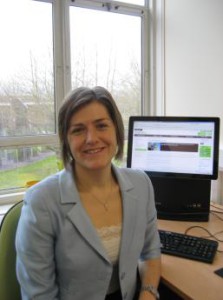Basler Kolloquium zur Didaktik der Geschichte und Politik 2014 (Demantowsky/Ziegler)
Montag, den 7. April 2014, 18 Uhr c.t.
Orangerie Sandgrube (Riehenstrasse 154), Basel
Dr. Alix Green
University oft Hertfordshire
Homepage (externer Link)
Alix Green’s Weblog
History and public purpose: defining, teaching, advocating the historian’s toolbox
This paper conceives of a historian’s toolbox, which can be put to use in a number of contexts, and for a number of purposes. While academe constitutes one, undoubtedly important, setting for historical practice, we can also recognise others, such as the shaping of public policy, which will be the concern here. Further, a form of obligation on historians to contribute to policy development may be identified, to which historians have not, perhaps, responded as they might. The re-connection of history and policy – the nineteenth-century discipline clearly discerned a public-political purpose for history – requires attention to be given to articulating and demonstrating the distinctive cognitive tools of the historian and their distinctive value to the policymaking process.
The paper will consider the challenges and opportunities for a more productive engagement between history and policymaking, drawing on the experience of British central government in the recent past, focusing on the post-Second World War period. It will suggest that fundamental shifts in political culture have led to an ambivalence, even aversion to history as ‚the past‘ and history as a discipline, but also point to potential configurations for the integration of historical expertise into the policymaking process.
If, as will be argued, we need to move from a model of providing pre-packaged accounts for policy to embedding historical as a way of thinking and reasoning in policy, then this raises issues for how we train history students. Public history provides a helpful framework and set of concerns to work with in this respect, but offers no prescription. It is a field that eludes definition, though here I take it in a broad sense to include the many ways in which, following Alfred J. Andrea, ‘the dimension of historical time [helps] to meet the practical and intellectual needs of society at large’.
Public history education varies by political, cultural and disciplinary context and is often far less attuned to questions of public policy than to the more familiar domains of museums, heritage and preservation (and for important reasons). The paper will outline some considerations for the development of historical education before concluding with some comments about the importance of international perspectives and comparative and conceptual approaches.
Über Alix Green
Lecturer in Public History and Policy, Director of Professional Doctorate in Heritage 2012-present; Design and delivery of first undergraduate ‘minor’ in Public History; Contribution to teaching inside and outside the School of Humanities, and to staff CPD training, particularly on government and politics and the history of higher education; Research: modern/contemporary history and politics, public history, discipline of history, historiography; Deputy Chair of interdisciplinary Heritage Hub; Building national and international networks in public history/public policy; Head of Policy (position held jointly with Lectureship 2012-2013) 2007-2013; Working on national policy forums and working groups, representing the University/Vice-Chancellor; Building relationships with Government/Shadow teams, Select Committees, MPs and stakeholders, and influencing policy; Horizon-scanning, research, briefing and strategic advice for Executive team on policy issues, market positioning and business development, including international dimensions; Working with senior management on institutional strategies, particular reference to policy and funding; Principal Adviser to the government-commissioned Wilson Review of University-Business Collaboration 2011-2012; Research Manager (New Local Government Network) 2006-2007; Research & Development Liaison Officer (National Research & Development Centre for adult literacy and numeracy, Institute of Education, University of London/Department for Education and Skills) 2004-2006.






